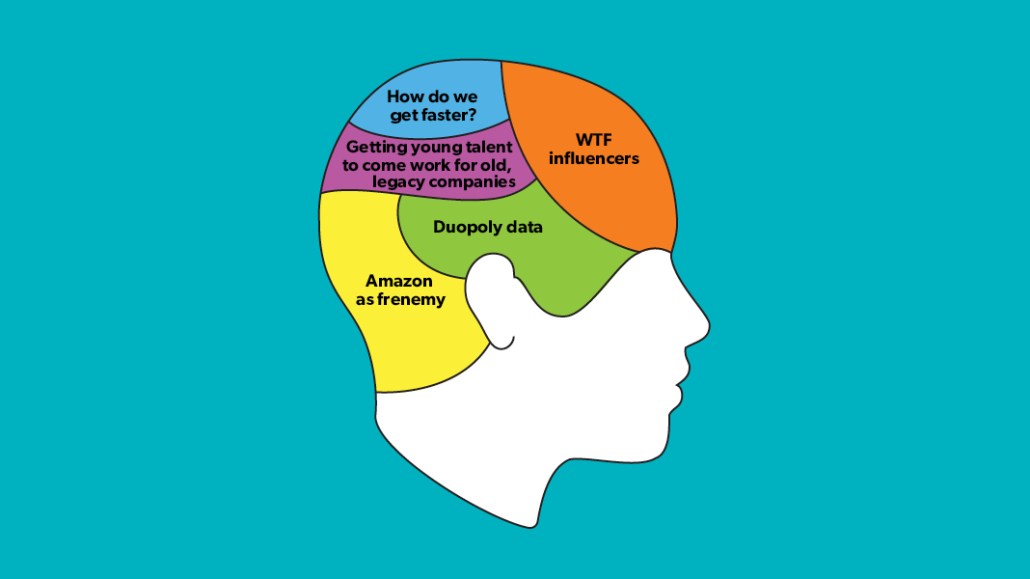Secure your place at the Digiday Media Buying Summit in Nashville, March 2-4

This week, in Berlin, Digiday brought together 50 executives from brands and technology companies from Germany, other European countries and the United States at our first European brand summit.
During the summit, we held working group meetings and town halls to discuss the greatest challenges facing these brands: agencies, platform relationships and internal organization. These meetings were held under the Chatham House Rule — on the record, without attribution of names or companies. Here are the candid thoughts shared during those meetings.
Read the first part on what marketers really think about influencers and Amazon here.
Internal issues
“Emails are the biggest problem. I’m sick of email tennis.”
“What stops us from doing new things or trying new technologies are colleagues who have been using email for 20 years, and they refuse.”
“We have too many ways to communicate. A lot of things get lost along the way, especially from headquarters to local offices.”
“We’re a relatively mature set of employees. The culture is more of a client culture than an agency culture. Most young guys who are real data-crunching geeks or data scientists are more attracted by the agency universe.”
“We have very traditional brands and a very old CEO. Digitalization is really a problem. We are so slow. Our CEO says our brands are built by old people, and they’re not online.”
“The hardest part has been the talent. It’s easy to have a vision. It’s taken two quarters to build the right talent to support what we’re doing in-house. It’s the biggest challenge to me as a CMO.”
“I’m still not happy with the role social plays as customer service. We as marketers get caught up in buzzwords. At the end of the day, I’m a salesperson and need to ship cases. I haven’t been bought into some of the things we’ve been doing socially.”
Agency relationships
“We need to treat our agencies like partners. Involve them in everything. We often don’t.”
“There’s so much disconnect between the brand and agency and what the agency wants to achieve. The agency doesn’t understand an idea or is just entirely focused on results.”
“The problem is that it’s never said up front what we want and what the agency wants.”
“We often don’t realize agencies have a business to run as well.”
“When you’re in a brand as an assistant brand manager, you’re often No. 2 to the agency. My leadership looks at the agency as the No. 1. Because the assistant brand managers are expendable. The agency is not. You’d be surprised at how much they can do.”
“Agencies earn so much money with classic modes of communication that they never need to build new departments that do things like CRM or innovative new media.”
“Agencies are guessing. Just guessing. And clients are believing.”
“You get the agency you deserve.”
More in Marketing

Thrive Market’s Amina Pasha believes brands that focus on trust will win in an AI-first world
Amina Pasha, CMO at Thrive Market, believes building trust can help brands differentiate themselves.

Despite flight to fame, celeb talent isn’t as sure a bet as CMOs think
Brands are leaning more heavily on celebrity talent in advertising. Marketers see guaranteed wins in working with big names, but there are hidden risks.

With AI backlash building, marketers reconsider their approach
With AI hype giving way to skepticism, advertisers are reassessing how the technology fits into their workflows and brand positioning.





